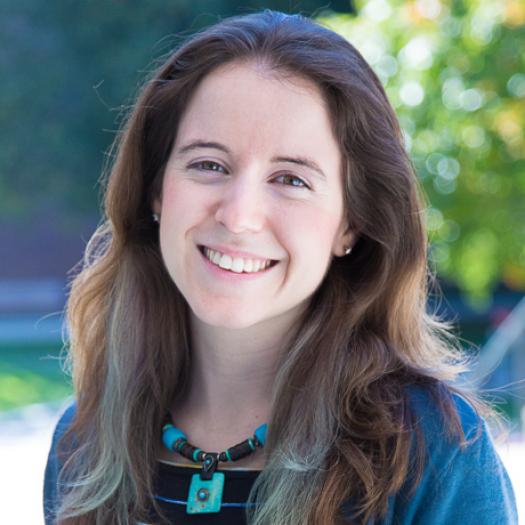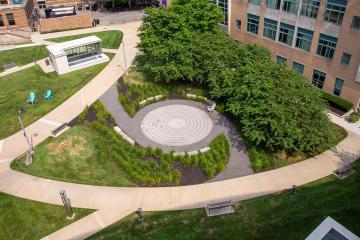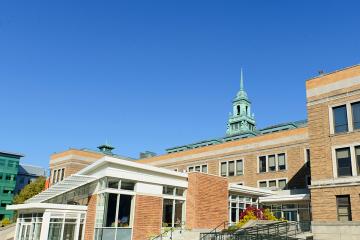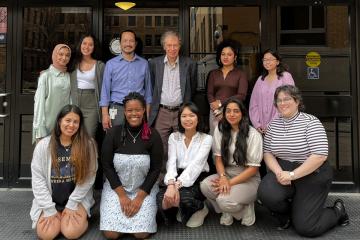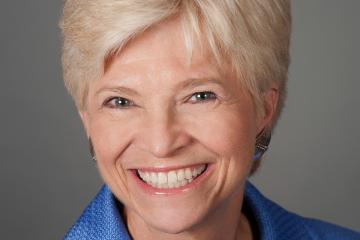Chemistry

Hands-on science for diverse careers
Many people call chemistry "the central science" because it connects physics, biology, medicine, engineering, and environmental science. At Simmons, a Bachelor of Science in chemistry gives you a rich understanding of the world, down to the molecular level. The field is a great entry to careers in education, science, technology, engineering, mathematics, and health sciences.
A BS degree in chemistry at Simmons brings many benefits:
- Individual attention in a small, selective program
- Cutting-edge resources with your own reserved lab space
- A world-class location in Boston, a hub of innovation and scientific industry
You’ll join a community committed to advancing women and gender equity. At Simmons, we believe in helping every student build confidence and reach their potential in the sciences.
Why study chemistry at Simmons?
In our rigorous chemistry program, you’ll explore a wide range of topics. Courses cover general chemistry, biochemistry, organic chemistry, thermodynamics and kinetics, quantum mechanics, and more.
Along the way, you’ll benefit from:
- Green chemistry leadership: Simmons is nationally recognized for advancing safer, more sustainable scientific practices.
- Dedicated lab access: Use the latest technology in state-of-the-art labs, and receive a strong research experience.
- Exceptional faculty: Our professors are widely-known for their contributions to science education.
- Top-tier resources: Grants have given our department instrumentation that rivals (and sometimes exceeds) what’s available at larger universities.
- ACS-certified program: American Chemical Society certification guarantees a broad-based chemistry education that emphasizes lab experience, professional development, and real-world readiness.
By graduation, you’ll have mastered the experimental, analytical, and communication skills employers and graduate schools seek.
What can you do with a chemistry degree?
A chemistry degree is one of the most versatile you can earn. Our students find positions in fields including:
- Health sciences and medicine (eg, medical school)
- Biotechnology and pharmaceuticals
- Education and training
- Environmental and green chemistry
- Engineering and applied research
No matter which path you choose, you’ll be equipped with the skills to make an impact on the world through science.





